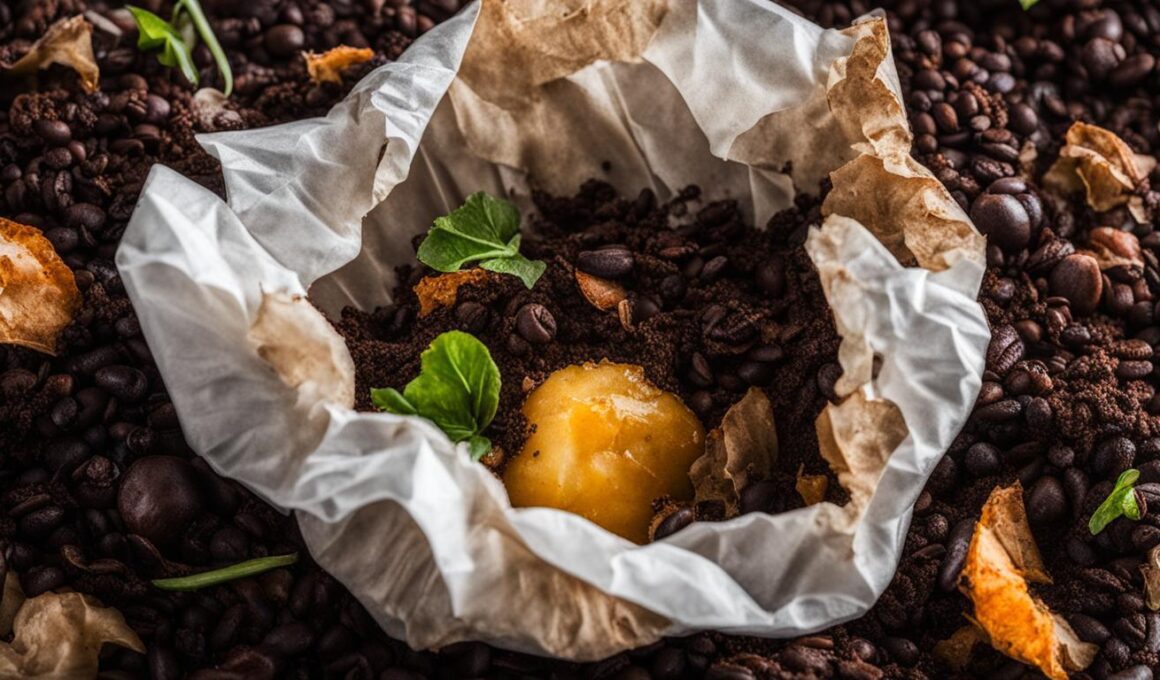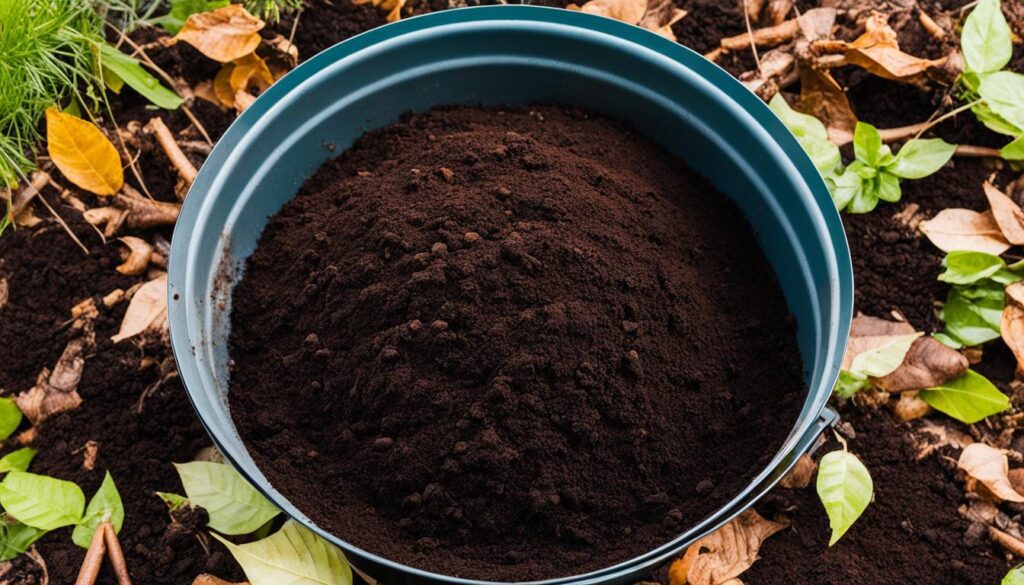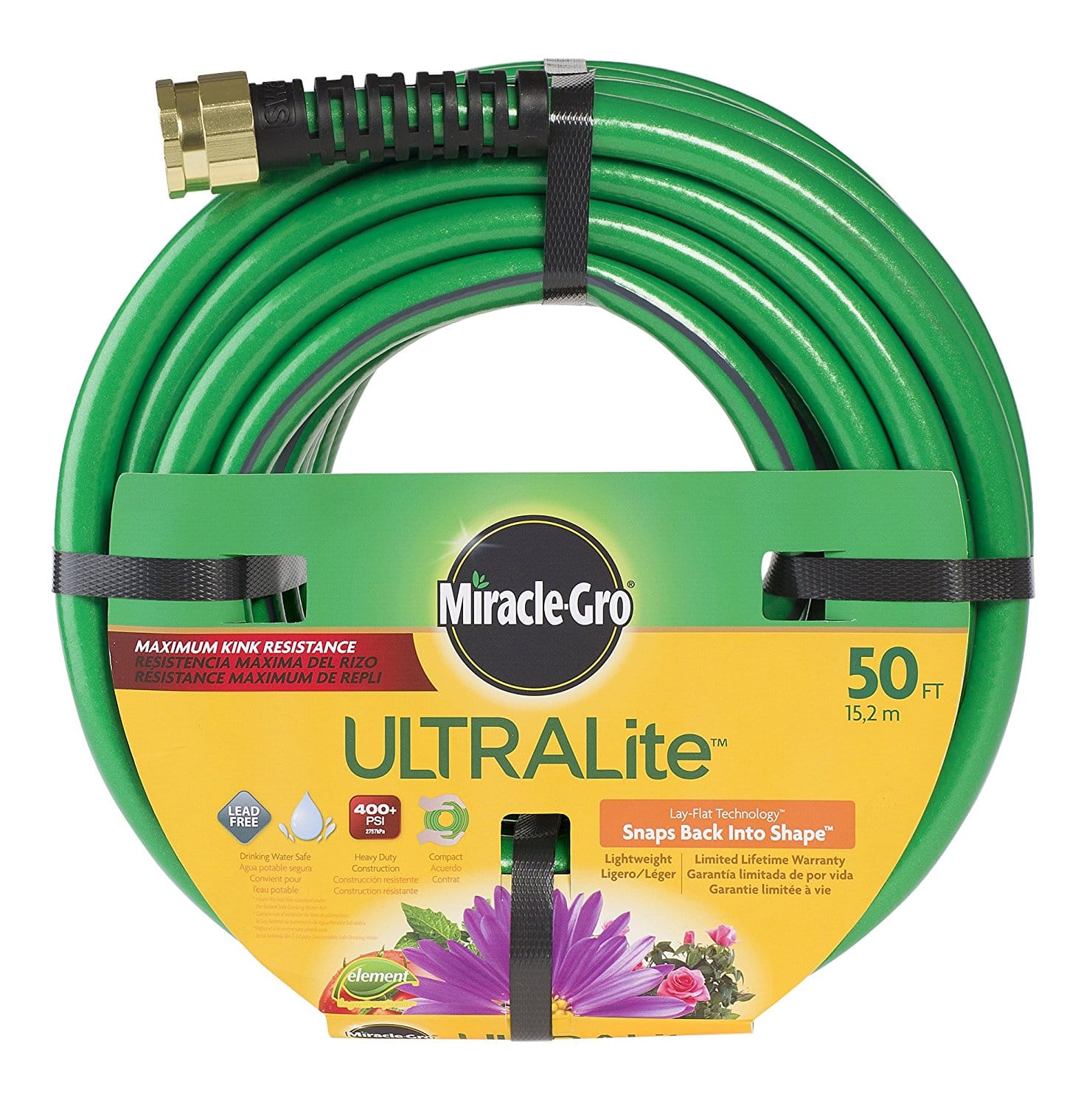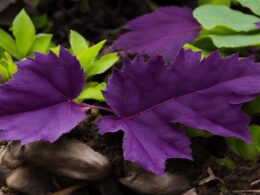Welcome to our guide on composting coffee filters and creating an eco-friendly coffee routine. If you’re wondering whether coffee filters can be composted, you’re in the right place. Composting coffee filters is a sustainable practice that can benefit both your garden and the environment.
When it comes to composting coffee filters, it’s important to consider the type of filter you’re using. Paper filters, especially the biodegradable ones, are suitable for composting. They break down quickly and aid in the decomposition of organic materials, making them an ideal choice for compost piles.
Benefits of Composting Coffee Filters
Composting coffee filters offers several benefits that contribute to a more sustainable and eco-friendly lifestyle. When you compost coffee filters, you not only improve the structure of your soil but also add valuable nutrients for plant growth. Here’s how composting coffee filters can benefit your garden:
Improved Soil Structure
The addition of coffee filters to your compost pile helps create a favorable environment for microorganisms to thrive. These microorganisms break down organic materials, improving the structure of the soil. This, in turn, enhances water retention and nutrient availability, resulting in healthier plants.
Addition of Nitrogen to Compost
Coffee filters contain nitrogen, an essential nutrient for plant growth. By composting coffee filters, you introduce this nitrogen-rich material into your compost pile. Nitrogen stimulates the decomposition process and provides a source of nutrients for plants when the compost is applied to the soil.
Reducing Waste
Composting coffee filters is a simple yet effective way to reduce waste and divert organic materials from ending up in landfills. By composting your used coffee filters, you contribute to the circular economy, where waste is repurposed and recycled to create valuable resources. This reduces the need for synthetic fertilizers and promotes a more sustainable approach to gardening and waste management.
By composting coffee filters, you not only enhance the quality of your soil but also take a crucial step in reducing waste and embracing a more eco-friendly coffee routine. So, next time you enjoy your cup of coffee, remember to compost those filters and contribute to a greener future!
Composting Coffee Grounds
Coffee grounds are a valuable addition to your compost pile due to their nutrient-rich composition. They contain essential elements such as nitrogen, phosphorus, and potassium, which are vital for plant growth and development.
Contrary to popular belief, coffee grounds are not highly acidic and can be safely composted. In fact, they have a neutral pH level, making them suitable for a wide range of plants and soil types.
When adding coffee grounds to your compost pile, it’s important to consider the carbon to nitrogen ratio. Coffee grounds are considered a nitrogen-rich source, so it’s necessary to balance them out with carbon-rich materials like dried leaves or straw. This helps create a well-balanced compost that decomposes efficiently.
The decomposition process of coffee grounds can be optimized by maintaining proper moisture levels in the compost pile. The ideal moisture range is between 40% and 60%. Additionally, regularly turning the compost pile helps aerate the mixture, facilitating decomposition and preventing odors.
By composting coffee grounds, you not only divert waste from landfills but also create a nutrient-rich soil amendment for your garden. The picture below illustrates the decomposition process of coffee grounds in a compost pile.
Benefits of composting coffee grounds:
- Rich in nitrogen, phosphorus, and potassium
- Neutral pH, safe for a variety of plants
- Contributes to a well-balanced carbon to nitrogen ratio
- Optimizes decomposition with proper moisture and turning
Alternatives to Disposable Filters
If you’re looking to reduce waste and make your coffee routine more sustainable, there are several alternatives to disposable coffee filters that you can consider.
One option is to choose reusable filters. Metal, cloth, and reusable paper filters are durable and can be easily cleaned, making them a great eco-friendly choice. Reusable filters not only help reduce waste but also allow you to enjoy your favorite brew without any compromise on taste.
Another alternative is to repurpose your coffee grounds as a natural mulch in your garden. Coffee grounds are packed with benefits for your plants. They help retain moisture, improve soil structure, and provide nutrients like nitrogen, phosphorus, and potassium. Using coffee grounds as mulch is not only a sustainable option but also helps support the health and growth of your plants.
By implementing these reusable filter options and embracing mulching with coffee grounds, you can take a step towards a more sustainable coffee routine while reducing waste and contributing to a healthier environment.
Can Coffee Filters Attract Slugs to the Compost?
Coffee filters are a great addition to compost piles, but can they attract slugs? According to a recent slugs lay eggs article, slugs are drawn to moist, dark environments, so it’s possible that the coffee filters could attract them. To prevent this, it’s essential to regularly turn and aerate the compost.










